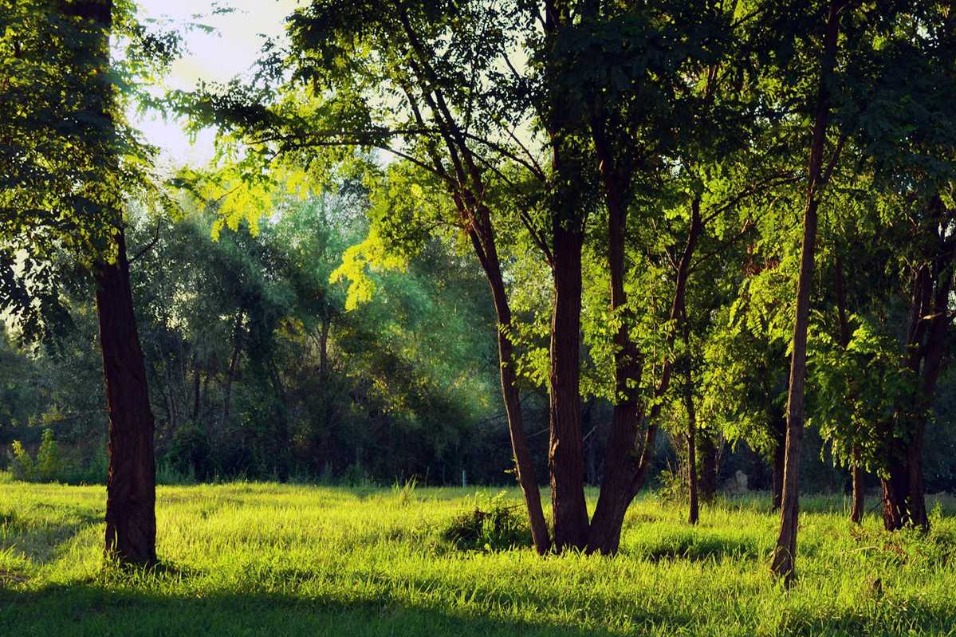世界地球日:保护环境怎么做?原来《道德经》里早就说过了 The best thing you can do on Earth Day is sit perfectly still
中国日报网 2019-04-22 13:55

今天是第50个世界地球日。地球,不仅是人类的家园,也是无数野生动植物共同的家园。为了呵护我们共同的家园,我们不仅需要有所为,也需要有所不为。

On April 22, people in 190 countries around the world will celebrate Earth Day. This year marks the 50th anniversary of the environmental holiday initiated in 1970 to bring attention to the plight of our ailing mother, Earth, and our fellow creatures, whose health and longevity are threatened by human activity.
4月22日,全球190个国家将共同庆祝第50个世界地球日。致力于保护环境的世界地球日于1970年发起,以使人们关注环境日益衰退的地球母亲及生物所处的困境,这些生物的健康和寿命受到人类活动的威胁。
plight [plaɪt]:n.困境;境况
ailing ['eɪlɪŋ]:adj.生病的,身体不舒服的;体衰的
【小知识:世界地球日】
世界地球日(Earth Day)即每年的4月22日,是一个专为世界环境保护而设立的节日,旨在提高民众对于现有环境问题的意识,并动员民众参与到环保运动中,通过绿色低碳生活,改善地球的整体环境。
地球日由盖洛德·尼尔森和丹尼斯·海斯于1970年发起。现今,地球日的庆祝活动已发展至全球190多个国家,每年有超过10亿人参与其中,使其成为世界上最大的民间环保节日。
中国从20世纪90年代起,每年都会在4月22日举办世界地球日活动。今年世界地球日宣传主题为“珍爱美丽地球 守护自然资源”。

The Earth Day Network sponsors numerous events with organizations across the globe to increase environmental awareness on this occasion, like teach-ins with scientists and trash cleanup projects. If you’re planning to attend one of these events, by all means do so. You will be part of what the sponsors call “the largest civic observance in the world,” joining more than a billion people who participate in this common cause that affects us all.
地球日网络与全球各地的几家机构一起赞助了很多活动,以在这一天提升人们的环保意识,比如科学家座谈会,以及垃圾清理项目等。如果你计划参加其中一项活动,一定要去。你将参加赞助者所说的“全球最大的民间节日”,与全球10亿多人一起加入到这项影响全人类的共同事业中来。
teach-in:宣讲会,座谈会
However, if you haven’t yet made plans and wish to take a stand, there is one activity that you can do alone at home that will help you and the planet. It ensures that ever-so-briefly you are not contributing to climate change, and are doing what you can to save endangered species. Don’t drive or fly. Don’t buy anything. Do no laundry. Turn off the lights. Avoid going online. Depending on where on Earth you are, shut down the air-conditioning or heaters (unless you’ve got solar panels!).
如果你还没有制定计划,但还是希望表示一下立场,你可以独自在家进行一项对自己和地球都有益处的活动。它能确保你起码在短期内不会造成气候的变化,并且尽自己所能保护濒危物种。不要开车,也不要搭乘飞机;不要购物;不要洗衣服;关掉电灯;不要上网。根据你所处的地理位置而定,关掉空调或者暖气(除非你用的是太阳能电池板)。
Breathe deep and take a seat.
深吸一口气,坐下来。
Doing nothing is also a way to do something. That is why contemplative types have practiced the fine art of sitting in meditation for millennia. While many of us are action-oriented and want to be involved in solving the world’s problems, some philosophers have argued that deliberate inaction provides necessary balance. Activism and ambition are great, but stirring the pot is not the only way to make a difference when it comes to being green.
什么也不做也是参与的一种方式,所以一千年以来,冥想者一直在练习静坐沉思的艺术。尽管我们很多人以行动为导向,想要参与到解决全球问题的进程中,但一些哲学家认为,有意的不作为能提供必需的平衡。行动主义和雄心壮志很好,但一直有所行动并不是让地球更环保的唯一方式。

In the Tao Te Ching, one of the world’s oldest and best-read philosophical texts, the sixth-century Chinese thinker Lao Tzu provided, “[t]he sage keeps to the deed that consists in taking no action and practices the teaching that uses no words.” While he acknowledged that there are occasions for doing—if action is well-timed—he emphasized the importance of not doing because so much of society’s messaging is about drive. “Do that which consists in taking no action and order will prevail.”
在全球最古老且最具可读性的哲学名著《道德经》中,中国6世纪的思想家老子说:“圣人处无为之事,行不言之教。”尽管他承认有时需要有意为之(在行为正合时宜时),但他强调了无为的重要性,因为这个社会传递的太多信息都与欲望有关。“为无为,则无不治。”
In the context of environmentalism, this message is especially important. It’s human doing that has jeopardized the planet, our hustle and bustle, our innovation and consumption, our fuel use, our shopping, our relentless drive and ceaseless wanting. And even when we try to do the right thing, it often turns out we ignore the consequences of alleged improvements.
在环境保护论的语境中,这种想法尤其重要。正是人类的行为威胁到了地球,比如我们的忙碌、创新和消费、燃料使用、购物、无尽的欲望和无休止的需求。甚至当我们尝试做正确的事时,我们也经常会忽视所谓改善产生的影响。
Take the growing debate over replacing canvas totes with single-use plastic bags, for example. Growing cotton taxes precious water resources. Manufacturing processes contribute to carbon emissions. It turns out, you have to use an organic cotton tote 20,000 times over to make up for the impact of its production.
以日益激烈的关于用帆布手提袋取代一次性塑料袋的争论为例。种植棉花会使用珍贵的水资源。制造过程会产生碳排放。其结果就是,你需要使用一个有机棉手提包2万次才能弥补制造过程对环境产生的影响。
canvas totes:帆布手提包

A scene from the previous BBC Planet series that include Planet Earth and Frozen Planet. The BBC has announced a slew of new natural-history shows that'll be broadcast in China. [Photo provided to China Daily]
Or, consider the fact that every time you wash your clothes, it releases micro plastics from synthetic fabric that eventually make their way into the ocean, and that these tiny particles travel long distances in the wind, possibly across continents. These invisible bits that you don’t see are damaging sea-dwelling species and ultimately also turning up in the fish we eat, as well as polluting previously pristine wild areas.
或者,想一想你每次洗衣服的情景,这会将微塑料从混合纤维中释放出来,最终流入海洋,这些微粒随风飘逝,可能穿越各大洲。这些肉眼不可见的微粒正在破坏海洋生物,并最终进入我们食用的鱼类体内,还会污染之前处于原始状态的野生区域。
pristine ['prɪstin]:adj.未开发的,原始的
That doesn’t mean you should just throw your hands up and despair, give up on trying to be a force for good. And it certainly doesn’t mean that you may as well chuck your plastic water bottles in the sea and trash the planet because it’s all too complicated.
这并不意味着你应该放弃抵抗,心生绝望,不再尝试为保护环境而努力。这当然也不意味着因为过于复杂,你最好把塑料瓶丢到大海里,随处扔垃圾。
chuck [tʃʌk]:vt.丢弃,抛掷
It simply means that one good thing you can do is take a day to contemplate the complexity and interconnectedness of all living things, including the Earth herself, and just do less. As Lao Tzu put it, “The sage…accomplishes without having to act…When one does nothing at all there is nothing that is undone.”
简单来说,这意味着你能做的一件有益之事就是用一天时间沉思芸芸众生的复杂性和关联性,包括地球本身,然后少做一些事。正如老子所说,“圣人不为而成。无为而无不为。”
英文来源:石英财经网
翻译&编辑:yaning

















 英语点津微信
英语点津微信 双语小程序
双语小程序